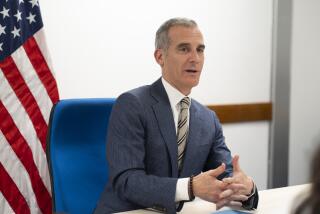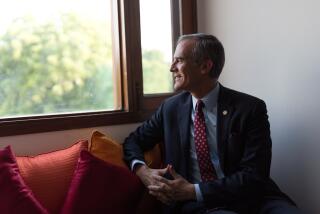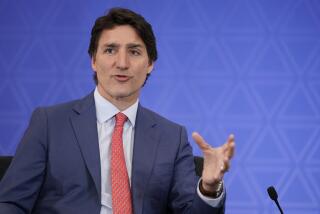Kerry’s India visit may revive languishing ties
NEW DELHI — With a host of issues in need of attention, from Afghanistan to immigration reform to market access, Secretary of State John F. Kerry arrives in India this weekend in an effort to inject some energy into what’s widely seen as sluggish U.S.-Indian relations.
“There is a widespread sense that U.S.-India relations are at something of a standstill,” said Dhruva Jaishankar, a transatlantic fellow at the German Marshall Fund in Washington. “Both countries remain inwardly focused, and the state of both economies hasn’t spurred either side to take any bold initiatives or offer concessions.”
The Obama administration’s upcoming talks with the Afghan Taliban militants are expected to be among the topics on the agenda when Kerry meets with Prime Minister Manmohan Singh and Foreign Minister Salman Khurshid, analysts said. India is concerned that those negotiations might expand the influence in the region of its archrival, Pakistan, especially with foreign troops preparing to leave Afghanistan next year.
Kerry will land in New Delhi on Sunday after a two-day stop in Doha, the capital of the Persian Gulf nation of Qatar, where he is to meet with a group of foreign ministers to discuss Syria. The Taliban talks are also in Doha, although it’s not clear whether they will start while he’s there or whether he would attend.
His first trip to India as secretary of State will focus on the fourth round of the U.S.-India Strategic Dialogue, a mechanism launched in 2009 to foster ties. The visit comes as the views of New Delhi and Washington on Pakistan appear closer than in any previous rounds, given Washington’s growing frustration and fatigue with Pakistan and that country’s approach to militants in its territory.
India and the United States are both taking a wait-and-see attitude on newly elected Pakistani Prime Minister Nawaz Sharif, including whether he can craft a good working relationship with his nation’s army and intelligence community. The security establishment, which some say is the true power in Pakistan, mounted a coup against Sharif in 1999 that ended his second stint as prime minister. Any easing of regional tension would be welcome.
Analysts on both sides of the Pacific said they didn’t expect many significant “deliverables,” diplomat-speak for formal agreements, out of this round.
“India and the U.S. aren’t working on signing deals; the idea is to work positively to resolve issues,” said Ronen Sen, a New Delhi-based analyst and former ambassador to the United States.
India is likely to seek assurances that U.S. immigration reform won’t work against Indian companies and that India will get preferential access to U.S. liquefied natural gas exports, analysts said.
Key concerns for the Americans include access to Indian markets — especially for U.S. civilian nuclear technology — and easing of Indian bureaucratic impediments in areas such as patent protection, defense acquisition and the insurance and retail sectors.
“Most of these are changes India needs to make for its own sake, to improve the investment climate,” said Jaishankar, the German Marshall Fund fellow. After years of stalled economic reform and declining foreign reserves, and with the value of the rupee falling, India has been keen to attract overseas investors.
“But there’s a danger that American lobbying will increase the sense in India that such reforms are being foisted upon the government by exploitative foreign corporations,” Jaishankar said. “In that sense, American leverage is limited.”
Kerry will also participate in a dialogue on education, deliver a policy speech on bilateral and regional issues and meet with young Indians to discuss energy, climate change, science and poverty alleviation.
Some in Washington have criticized India for the slow progress in strengthening ties with Washington, variously attributed to New Delhi’s desire to maintain some distance from the U.S. and to the relatively limited capacity of India’s foreign service. The South Asia nation has just 800 diplomats at a time of growing importance in world affairs, a fraction of the United States’ 15,000, China’s 6,200 and Brazil’s 3,000.
One Indian Foreign Ministry official countered that the figure underrepresented the work by staff members not officially recognized as diplomats. Others said it’s important to look at the overall direction of U.S.-India relations, not the speed.
“That is not a fair criticism. Delays depend on issues, and both countries are democracies and should understand how things function in a democratic nation,” Sen said. “India and the U.S. share an important relationship. There will be differences between nations. Only a saint or an idiot can agree on every issue.”
Special correspondent Tanvi Sharma in New Delhi and Times staff writer Paul Richter in Washington contributed to this report.
More to Read
Sign up for Essential California
The most important California stories and recommendations in your inbox every morning.
You may occasionally receive promotional content from the Los Angeles Times.










